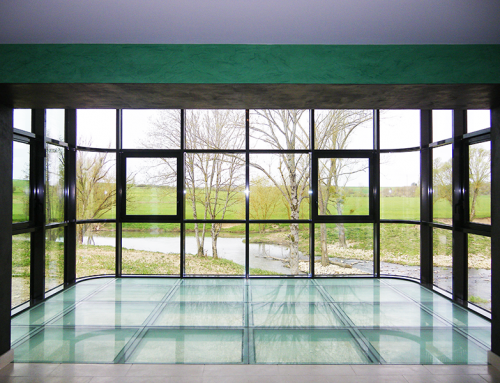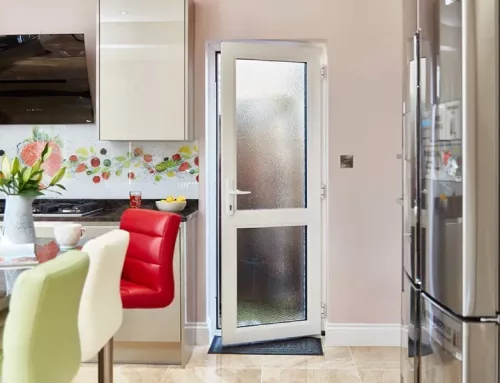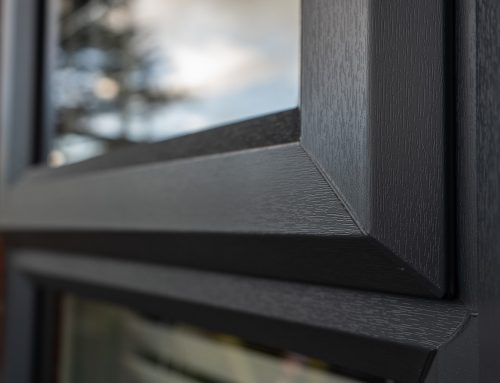uPVC Doors and Windows for Commercial Buildings: Meeting Safety and Regulatory Requirements
Commercial buildings are subject to stringent safety and regulatory requirements to ensure the well-being of occupants and compliance with building codes. When it comes to doors and windows for commercial spaces, uPVC (unplasticized polyvinyl chloride) has emerged as a popular choice due to its ability to meet these requirements effectively. In this article, we will explore how uPVC doors and windows are well-suited for commercial buildings, providing enhanced safety features and meeting regulatory standards.
1. Fire Safety Compliance:
Fire safety is a critical consideration in commercial buildings. uPVC doors and windows can be manufactured to meet fire safety regulations, such as providing fire-rated options. Fire-rated uPVC profiles are designed to withstand fire for a specified duration, allowing occupants to evacuate safely and providing additional time for emergency response. These fire-resistant properties make uPVC doors and windows an essential choice for commercial spaces, ensuring compliance with fire safety regulations.
2. Enhanced Security Measures:
Security is a top priority for commercial buildings, and uPVC doors and windows offer enhanced security features. uPVC profiles are inherently strong and rigid, providing resistance against forced entry. Additionally, multi-point locking systems, reinforced hinges, and toughened or laminated glass add layers of security. These features deter potential intruders and ensure the safety of occupants and valuable assets within the commercial premises.
3. ADA Compliance:
Commercial buildings must adhere to accessibility standards outlined by the Americans with Disabilities Act (ADA) or equivalent regulations in other countries. uPVC doors and windows can be designed and installed to meet ADA requirements, ensuring accessibility for individuals with disabilities. Features such as wider door openings, low threshold options for easy wheelchair access, and proper hardware placement to accommodate people with limited mobility can be incorporated into uPVC doors and windows, creating an inclusive environment for all.
4. Energy Efficiency and Environmental Compliance:
Energy efficiency and environmental sustainability are important considerations for commercial buildings. uPVC doors and windows contribute to energy efficiency by providing excellent thermal insulation, reducing heat transfer, and improving indoor comfort. Energy-efficient uPVC profiles help commercial buildings meet energy performance standards and contribute to sustainability goals. Furthermore, uPVC is a recyclable material, aligning with environmental compliance and reducing the carbon footprint of the building.
5. Noise Control:
Commercial buildings are often located in busy urban areas or near noisy environments. uPVC doors and windows offer effective noise control features, helping to create a quiet and productive indoor environment. The multi-chambered design, double or triple glazing, and proper seals minimize sound transmission, reducing noise pollution and enhancing the well-being and productivity of occupants.
6. Compliance with Building Codes and Standards:
uPVC doors and windows are designed and manufactured to meet relevant building codes and standards. Whether it is fire safety regulations, structural requirements, wind load resistance, or thermal performance standards, uPVC products undergo rigorous testing to ensure compliance. Choosing uPVC doors and windows for commercial buildings provides peace of mind, knowing that they meet the necessary requirements and regulations.
Conclusion:
uPVC doors and windows are a suitable choice for commercial buildings, meeting safety and regulatory requirements effectively. Their fire safety compliance, enhanced security measures, ADA accessibility, energy efficiency, noise control features, and compliance with building codes make them an ideal option. By choosing uPVC, commercial building owners and designers can create safe, secure, and compliant spaces that prioritize the well-being of occupants while also contributing to energy efficiency and environmental sustainability. uPVC doors and windows offer a combination of functionality, durability, and compliance, making them an excellent choice for commercial buildings.



